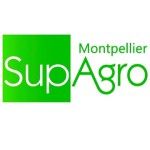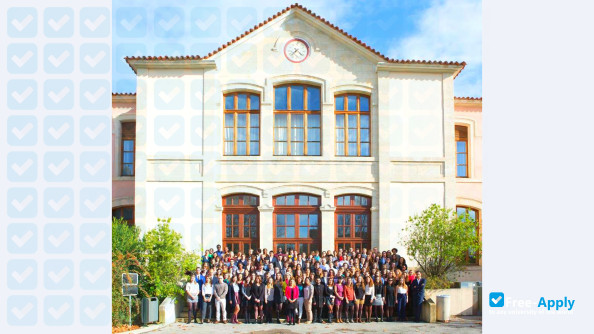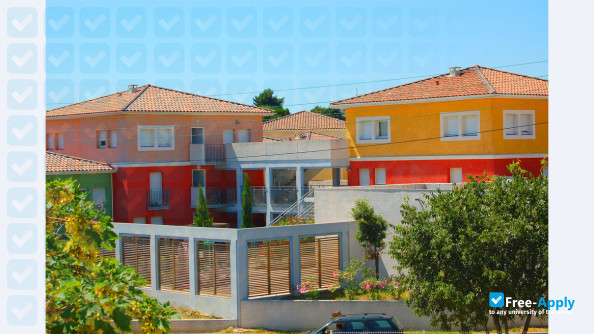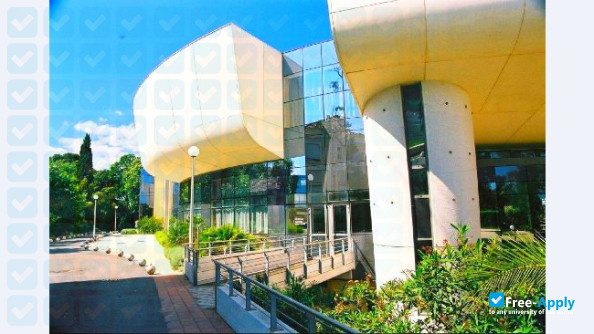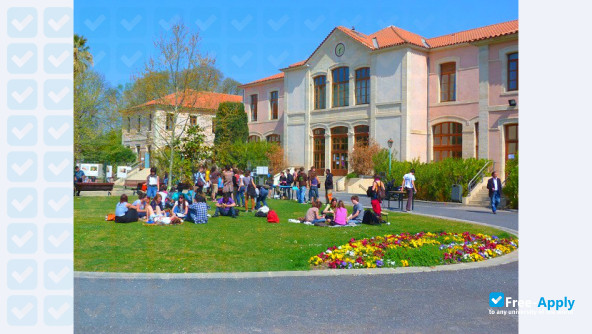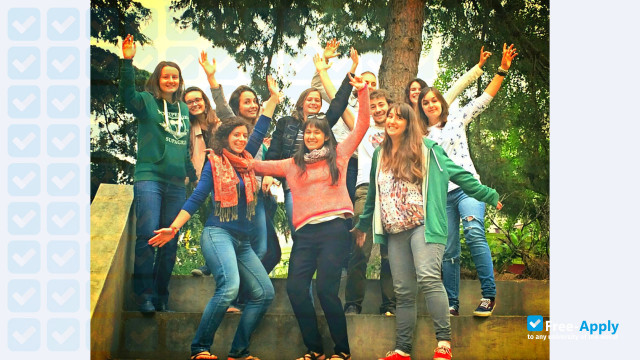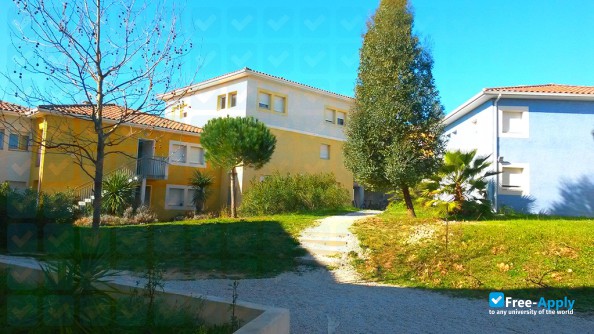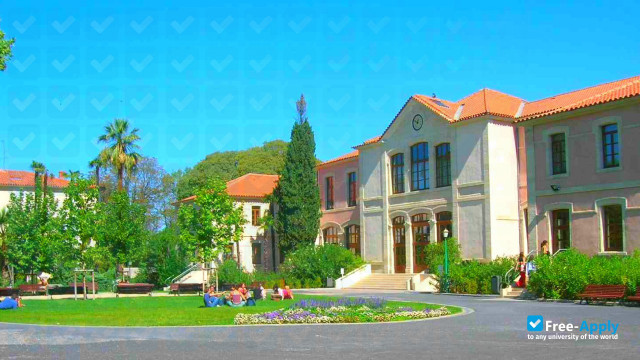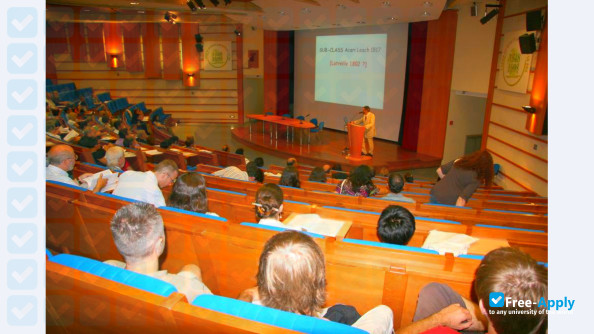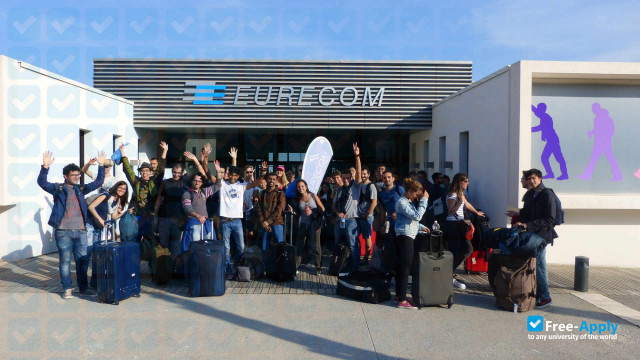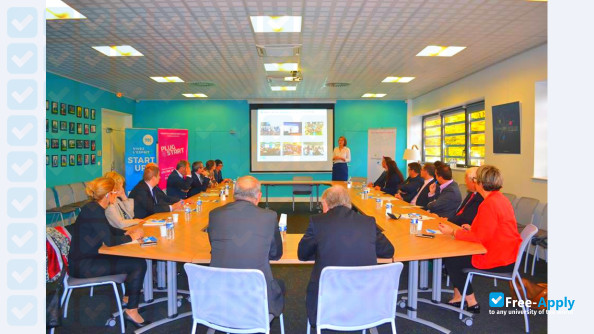About the university
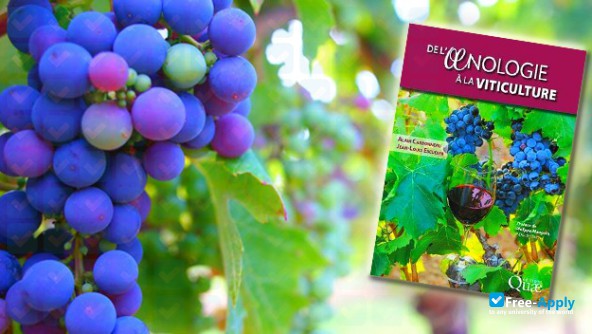
The Ecole Nationale Superieure Agronomique de Montpellier is the result of the merger in 2007of four institutes: The National Institute of Higher Education in Agricultural Sciences, Montpellier, the National Center for Tropical and Sub-Tropical Environments (CNEARC), the Institute for Innovative Education In Experimental Agro-Environment in Florac and the National Institute of Higher Education in Tropical and Sub-Tropical Agri-Food Sciences (SIARC). Regional Institute of Agricultural Sciences was founded in a farm, created in 1842 by Césaire Nivière , on a farm located in La Saulsaie , in the commune of Montluel in the department of Ain . It became a regional agricultural school in 1848 with the aim of training "farm managers, landowners or farmers" and its operating costs were borne by the State. But as a result of financial disappointments, the school was closed in 1869 and moved to Montpellier which offered to welcome him on the site of La Gaillarde. The first years of existence proved so difficult, however, that the school almost disappeared. It owes its continuity to the successes of its teaching teams in the struggle against the scourge of the phylloxera in the years 1870-1890 and to the world reputation it derived from it. From a regional school, it then briefly became an imperial school and then a national school of agriculture in 1876. In 1908, like the other national schools ( Grignon and Grandjouan ) the Montpellier school awarded the diploma of agricultural engineer . Its specific fields of competence are then: agriculture, horticulture, etc. In 1946, the National Institute of Agricultural Research ( INRA ) was created and one of its main centers was immediately installed on the site of La Gaillarde, initiating fruitful relations with the school. With the formation of the group of the national higher agronomic schools in 1960, this one finally reaches the level of higher education and the granting of the title of engineer agronomist . In 1987, she is entitled to deliver only the doctorate . When the Agropolis International complex was created in 1986, the school naturally became one of its main promoters and focused its international communication on this new unifying concept.
Education programs
Agriculture
Agriculture
Bachelor of Agriculture
French
Language of instructions
Full-time
Study mode
$1,000
Fee for international students
$1,000
Fee for domestic students
Biology
~ $1,000 / year
Biology
Bachelor of Biological
French
Language of instructions
Full-time
Study mode
$1,000
Fee for international students
$1,000
Fee for domestic students
Earth Sciences
~ $1,000 / year
Earth Sciences
Bachelor of Earth Sciences
French
Language of instructions
Full-time
Study mode
$1,000
Fee for international students
$1,000
Fee for domestic students
Economics
~ $1,000 / year
Economics
Bachelor of Economics
French
Language of instructions
Full-time
Study mode
$1,000
Fee for international students
$1,000
Fee for domestic students
Engineering
~ $1,000 / year
Engineering
Bachelor of Engineering
French
Language of instructions
Full-time
Study mode
$1,000
Fee for international students
$1,000
Fee for domestic students
Environmental Studies
~ $1,000 / year
Environmental Studies
Bachelor of Environmental Studies
French
Language of instructions
Full-time
Study mode
$1,000
Fee for international students
$1,000
Fee for domestic students
Food and Nutrition
~ $1,000 / year
Food and Nutrition
Bachelor of Food and Nutrition
French
Language of instructions
Full-time
Study mode
$1,000
Fee for international students
$1,000
Fee for domestic students
Health
~ $1,000 / year
Health
Bachelor of Health
French
Language of instructions
Full-time
Study mode
$1,000
Fee for international students
$1,000
Fee for domestic students
Management
~ $1,000 / year
Management
Bachelor of Management
French
Language of instructions
Full-time
Study mode
$1,000
Fee for international students
$1,000
Fee for domestic students
Sociology
~ $1,000 / year
Sociology
Bachelor of Sociology
French
Language of instructions
Full-time
Study mode
$1,000
Fee for international students
$1,000
Fee for domestic students
How to apply to the university
Choose a program
Press “Apply now” button
Send an application form
Complete admissions tasks
Go to study
To apply to Montpellier National School of Agronomy follow these steps. To get more information about the university and the admissions process, you can use the live chat to contact a university representative.
Required documents for admission
When applying for admission to Montpellier National School of Agronomy in France you should prepare all required documents. Request a list of necessary documents directly from a university, as it may vary for different countries. Using our live chat, you can also ask for sample documents.
- Declaration for financial support
- Local Language Certificate
- Research proposal outline (MA, PhD)
- Online Application form
- Supervisor Agreement Form (PhD)
- Student visa
- Motivation Letter
- Proof of fee payment
- Health and Life Insurance
- Photographs
- Resume/CV (graduate, postgraduate)
- Passport
Why people choose this university
Contacts
Montpellier National School of Agronomy
2 Place Pierre Viala
Montpellier
34060
France
Free Apply is not responsible for the content of this page. Through the Site, Free Apply provides an online catalog which you can use to find different types of educational institutions. It’s possible for a new university to be registered by any user, however only verified university representatives will be able to manage, reply in chat and make changes to a university page. Once the University registers its official representative, it has the right to block access for others to edit the information. Further control over the content will be carried out by the representative of the University. Registration with the Free-Apply.com catalog is free.
